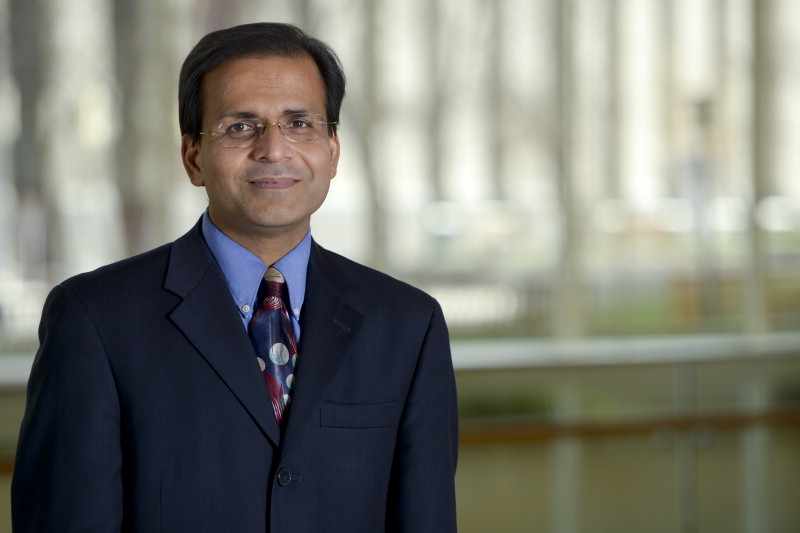-
Featured News
Something to Think About: What proportion of suffering is invisible?

Dr. Amit Sood says, "The greatest barrier to compassion isn’t the absence of it; it is the limitation of compassion to a select few who we believe deserve it."
Dear friend,
The planets, stars, and galaxies we can see today make up only 4 to 5 percent of the universe. We cannot see the rest, often called dark matter (27 percent) and dark energy (68 percent). Perhaps with more-refined instruments we will have better luck seeing the totality of the universe in the future.
Our brains, despite being as awesome as they are, are also very limited instruments. My brain can’t sense any of the Wi-Fi networks that surround me, nor can it perceive the thousands of TV channels that my television receiver easily gains access to. More is unknown than is known to me.
The same is true for suffering. The greatest barrier to compassion isn’t the absence of it; it is the limitation of compassion to a select few who we believe deserve it. With that attitude, you’re likely to disregard the bulk of the suffering in the world—since it’s invisible.
We see suffering in the hospital rooms, slums, famine-stricken lands, rejection letters, funerals, and courtrooms. With an average of two deaths every second on our planet (about sixty million in a year, more than 10 percent of which happen in children less than five), you can guarantee that, right at this moment, tens of thousands of people are mourning a loved one. (It isn’t all that gloomy though. Four babies are born every second; for each family in mourning, two are celebrating.)
The invisible suffering is everywhere. People endure it—in silence—while driving, showering, sleeping, eating, meeting, arguing, even partying. It starts the moment we wake up, accompanies us through the day, and often continues in sleep. We make valiant efforts to hide it—behind our smiling lips. But it’s difficult to fool our own minds. Deep within us is a silent counter that logs our experience of suffering and slowly hollows our brain.
Our invisible suffering arises from feeling unworthy, powerless, hopeless, and lonely. The feeling that we lack control and our life doesn’t have much meaning also causes suffering. Our tendency to compare and our vivid imaginations with a negative bias compound the suffering.
Despite all its negatives, however, of late I’m realizing that my invisible suffering has tremendous value. It has opened me up to the challenges of being human. It has made me more compassionate. It has inspired me to accept, find meaning, be more resilient, and become a better human being.
In the current world, most of us need personal experience with suffering to recognize suffering in others. We must transform into beings who are spontaneously compassionate so we won’t need to suffer to become sensitive to suffering in others. I believe it is then that the meaning in suffering, visible or invisible, will vanish, and we will cease to suffer.
May courage and fortitude not leave your company through life’s narrow lanes.
Take care.
Amit
Read Dr. Sood's blog posts and follow @AmitSoodMD on Twitter.

Dr. Sood is director of research in the Complementary and Integrative Medicine Program on Mayo Clinic's Rochester campus in Minnesota. He also chairs the Mind-Body Medicine Initiative at Mayo Clinic.







